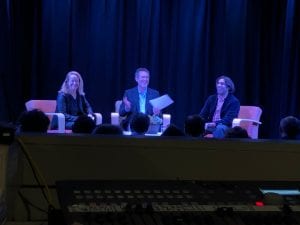BENNETT PUBLISHED IN ANNUAL REVIEW
Ryan Bennett‘s joint work with Emily Elfner (York University) entitled “The Syntax-Prosody Interface” was recently published online in the Annual Review of Linguistics. The article provides an overview of current and historical issues in the study of the syntax-prosody interface. You can find it along with an abstract here.
